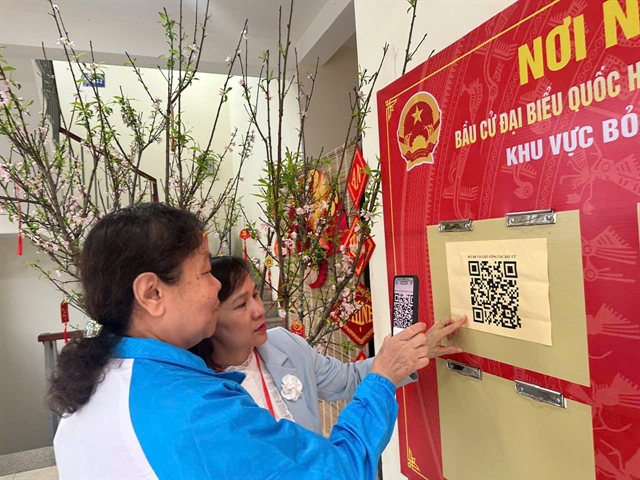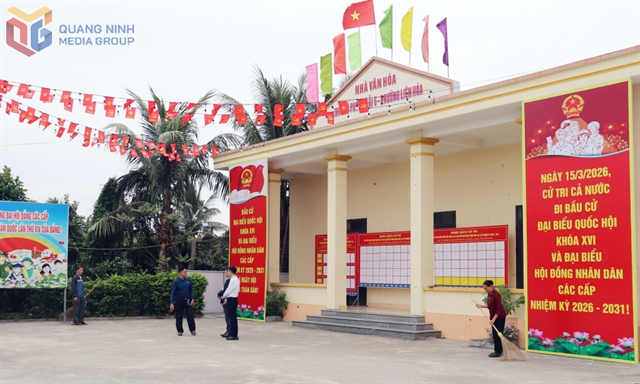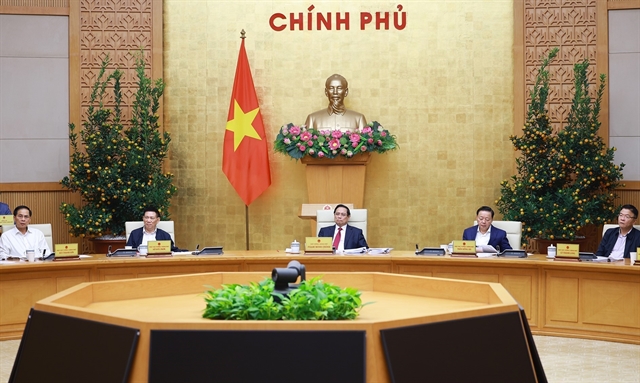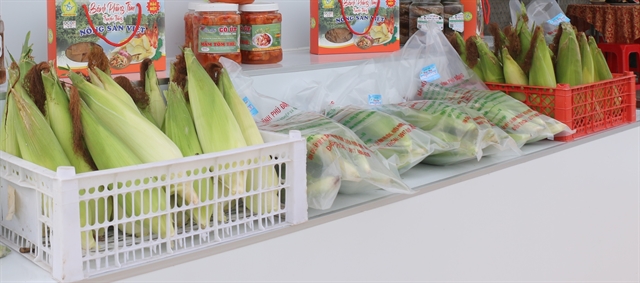 Society
Society
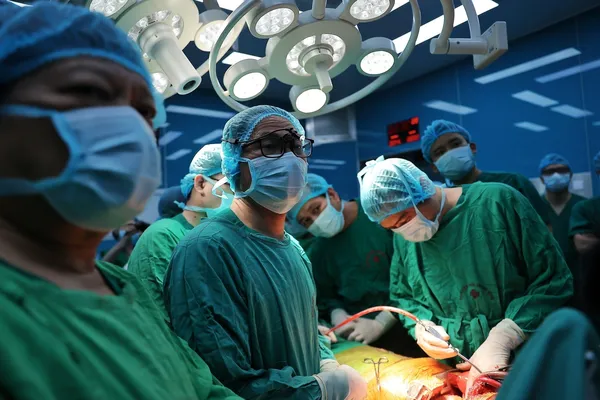
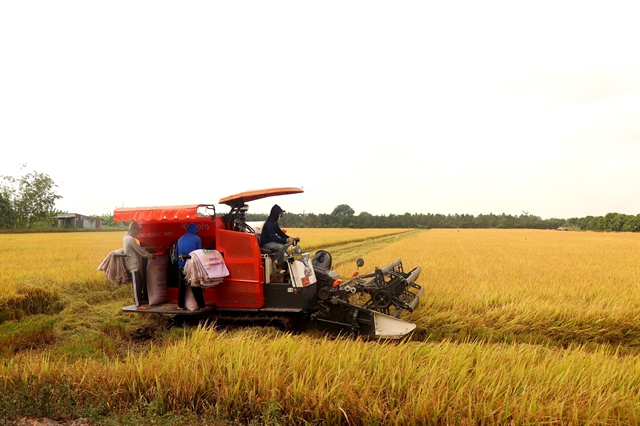 |
| Farmers harvest the winter-spring rice crop in Cần Thơ’s Cờ Đỏ District in February. —VNA/VNS Photo Thu Hiền |
CẦN THƠ — Cần Thơ will establish concentrated farming areas with production code, origin traceability and value chains.
Under its strategy to develop agriculture until 2030, the Cửu Long (Mekong) Delta city will develop circular agriculture to farm sustainably with low greenhouse gas emissions and other environment-friendly practices.
It will create plant varieties with high yields and quality, disease resistance and adaptation to climate change.
It will improve managing the use and trade of seeds and seedlings, fertilisers and pesticides.
It will use natural resources effectively, protect the environment, cope with climate change and mitigate the impacts of natural disasters.
It targets farmlands adopting Vietnamese good agricultural practices (VietGAP) accounting for 10-15 per cent of the total.
It wants farming done with linkages between various stakeholders to account for 30-35 per cent.
It aims agricultural production value will reach VNĐ200 million (US$7,800) per hectare a year by 2030.
The city will develop its key crops – rice, vegetables, short-term commercial crops, fruits, flowers, and ornamental plants.
It includes maintaining 48,000ha of high-quality and low-emissions rice and producing one million tonnes of paddy a year by 2030.
It now has 25,000ha of fruit orchards with an annual output of 1.36 million tonnes, including 11,889ha of concentrated growing areas for key branded fruits.
It has 480ha grown to VietGAP or equivalent standards and has 120 fruit growing areas covering 1,100ha with production codes.
Co-operatives and co-operative groups in the city have tied up with companies to grow fruits on a total of 846.9ha for export.
The city will give priority to growing fruits that have high demand such as mango, banana, milk apple and durian.
It will develop value chains for agricultural production in combination with offering tourism services, and boost the development of high tech, smart and circular agriculture.
It will implement the Law on Crop Production in combination with investing in technical infrastructure and developing linkages in specialised farming areas.
It plans to strengthen advocacy to enhance public awareness, renovate production and trading, develop markets for agricultural products, apply science and technology, and implement agricultural extension activities.
It will focus on building infrastructure and enhance the State’s management capacity, boost international co-operation and co-operate with institutes, universities, provinces, and cities nationwide to develop agriculture.
Diversifying
The city Department of Agriculture and Rural Development has supported farmers with restructuring and diversifying cultivation to improve efficiency and produce more kinds of agricultural products.
Phạm Thị Minh Hiếu, head of the department’s Plant Cultivation and Protection Sub-department, said her agency has taught farmers new farming techniques and disease prevention methods and expanded effective farming models.
It has enabled farmers to use agricultural machinery and new farming techniques, and link up with companies to grow and sell products, she said.
In the 2023-24 dry season, the city taught farmers how to tend crops and fruit orchards amid a water shortage.
Trần Thái Nghiêm, deputy director of the department, said the department has instructed farmers to implement suitable farming measures to proactively cope with hot weather.
It has instructed them to use canals and ponds to store water and use rice straw and mud to cover the roots of plants, prune old branches and use automatic irrigation, organic fertilisers and bioproducts.
Nguyễn Văn Trí in Thới Lai District’s Trường Thắng Commune said he has stored water in ponds in his 2.5ha durian orchard, and irrigated it every other day.
“I have increased the use of organic fertilisers and reduced the use of chemical fertilisers and pesticides.”
The city has instructed rice farmers to switch to other crops on unproductive rice fields or rotate between the grain in the rainy season and a drought-resistant crop in the dry season on the same fields.
It plans to grow, on 2,519ha of unproductive rice fields, other short-term crops, fruits and other perennial trees this year.
In the ongoing summer-autumn crop, more and more rice farmers have switched to other short-term crops to save water and increase their incomes.
Nguyễn Văn Sang, who has a 4,000sq.m rice field in Ô Môn District’s Thường Lạc Ward, said: “In the summer-autumn crop I do not grow rice and switch to okra to save water and cope with hot weather.”
Okra offers high yields and selling prices, and so he can earn VNĐ15-20 million ($590-790) per 1,000sq.m per crop, three or four times what he makes from rice, he added. — VNS

